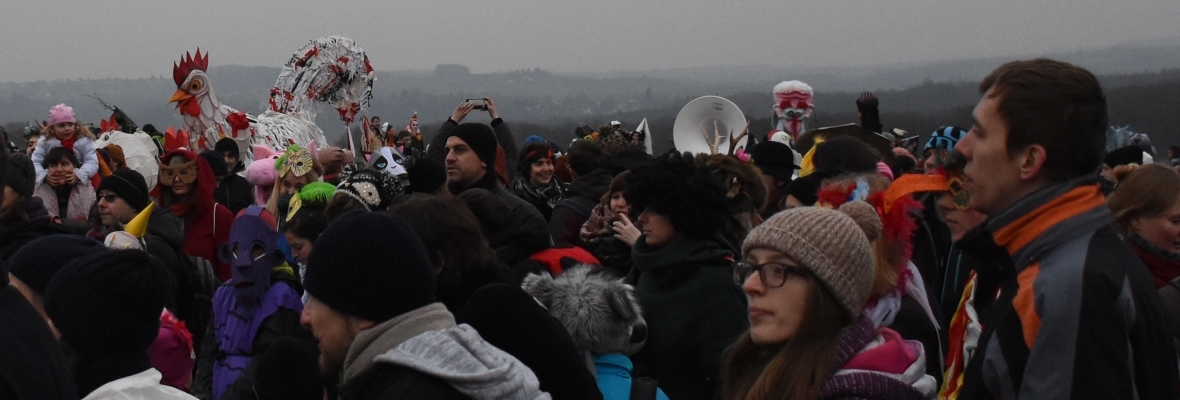
Balkan Express 2019 Conference Report
Balkan Express 2019 Conference Report
Wed Apr 08 10:55:24 CEST 2020

The 5th International and Interdisciplinary Balkan Studies Conference
Balkan Express 2019: Living together – Tolerance, Coexistence, Reconciliation
Date: November 8-9, 2019
Location: Institute of Ethnology of the Czech Academy of Sciences, Prague
Conference video:
Balkan Express 2019: Living together – Tolerance, Coexistence, Reconciliation from Marketa Slavkova on Vimeo.
Interview with Ivan Čolović:
Interview with Ivan Čolović from Marketa Slavkova on Vimeo.
The Balkan Express Conferences, organized since 2013, have become the largest conferences in Balkan Studies held on a regular basis in the Czech Republic.
Since the 1990s, academic production has prevailingly analyzed the region of Southeastern Europe through nationalist and ethnic frameworks that emphasize social conflict, resulting in a somewhat “negative” and “dark” image of the Balkans. The key goal of the Balkan Express 2019 was to seek out discourses and practices that transcend these stereotypical perceptions and conceptualizations and focus instead on examples of tolerance, coexistence and reconciliation “from below”, as they are understood, expressed, and practiced on an everyday level by the people of the Balkans themselves.
The key note speaker of the 2019 Balkan Express Conference was Ivan Čolović (Belgrade), doyen of Serbian and (post)Yugoslav anthropology, author of numerous monographs in the field of political anthropology available in many languages, public intellectual and publisher of the legendary edition of literature in social sciences Biblioteka XX vek since 1971. There were altogether 12 thematic panels with 34 academic presentations (30 minutes per presentation) prepared by 40 participants from the Czech Republic, Slovakia, Slovenia, Bosnia and Herzegovina, Serbia, Croatia, Macedonia, Montenegro, Bulgaria, Austria, Albania, Australia, USA, Canada, Great Britain, Poland and Finland. The presenters included distinguished scholars such as Božidar Jezernik (University of Ljubljana), Keith Doubt (Wittenberg University, USA) and Risto Pekka Pennanen (University of Helsinki) as well as many noted junior scholars but also students presenting their findings for the first time.
At the Film Panel, the ethnographic film Bottle Herders on formerly nomadic Bulgarian Sarakatsani shepherds by social anthropologist Gabriela Fatková was followed by fourteen short documentaries from the Balkans presented by members of the Visual Anthropology Center, a non-profit organization based in Belgrade, Serbia. The program also included three book presentations (Filip Tesař: Etnički konflikti, Keith Doubt and Adnan Tufekčić: Ethnic and National Identity in Bosnia and Herzegovina, Vladimir Vučković and Vladmir Djordjević, eds.: Balkanizing Europeanization) and one author reading (Blanka Čechová: Total Balkans). The active participants of a special Round Table on the future of Balkan studies in the Czech Republic included several distinguished personalities of Czech Balkan Studies such as ethnologist Mirjam Moravcová, historians Ladislav Hladký and Jan Rychlík as well as junior scholars and students.
The accompanying cultural program started with the opening of the exhibition Monte Bianco Negro by Montenegrin designer and illustrator Dejan Batrićević, with a speech by anthropologist Alenka Bartulović (University of Ljubljana) and text by professor of the Faculty of Dramatic Arts in Cetinje Janko Ljumović, former minister of culture of Montenegro. Dejan Batrićević, author of the visual identity of the Balkan Express 2019, also designed the conference program and other materials. The exhibition opening was followed by a live concert of the Prague group Džezvica, inspired, as the name suggests, by the rhythms and melodies of the Balkans. The final social event took place at Opletalova street near Prague' s central Wenceslas Square at Lastavica – Association for the citizens of former Yugoslavia, organization promoting tolerance, multicultural understanding, and cultivation of links and exchanges between the countries of former Yugoslavia and the Czech Republic.
František Šístek
Member of the organizing committee of the Balkan Express conference
Institutional Support:
Faculty of Humanities, Charles University
Institute of Ethnology of the Czech Academy of Sciences
Institute of History of the Czech Academy of Sciences
Institute of International Studies of the Faculty of Social Sciences, Charles University
Czech Association for Slavic, Balkan and Byzantine Studies
Conference programme (pdf) available here.










